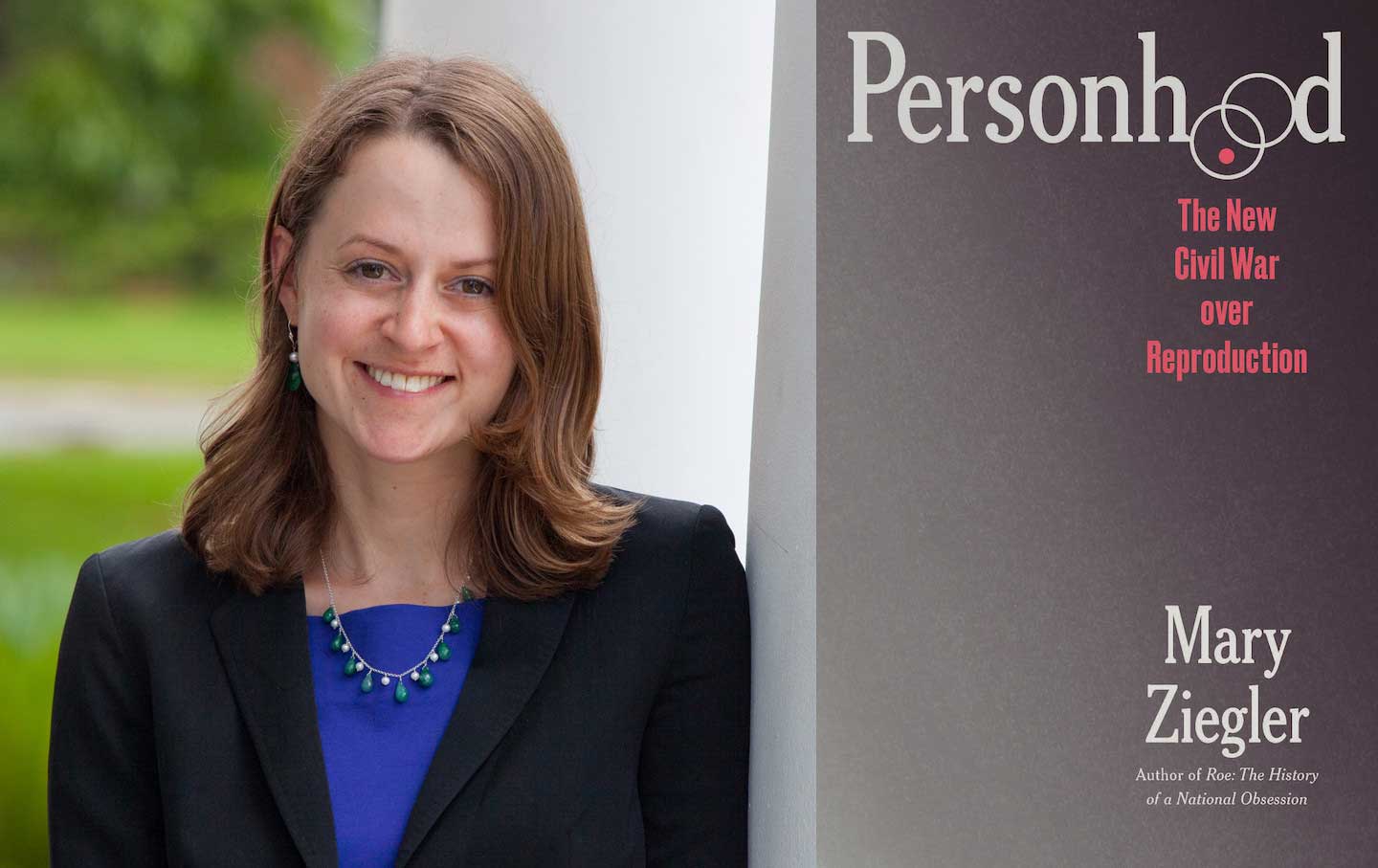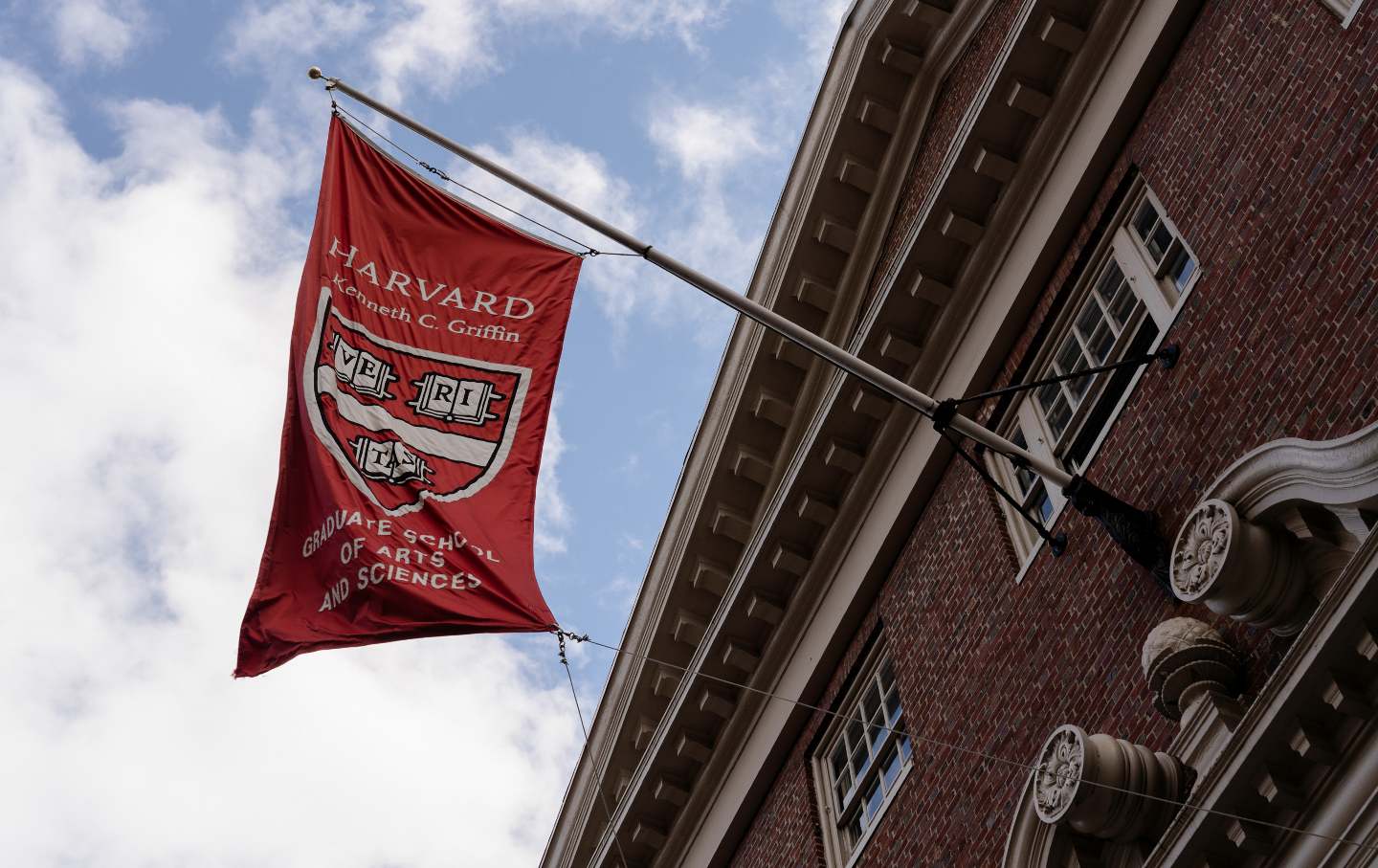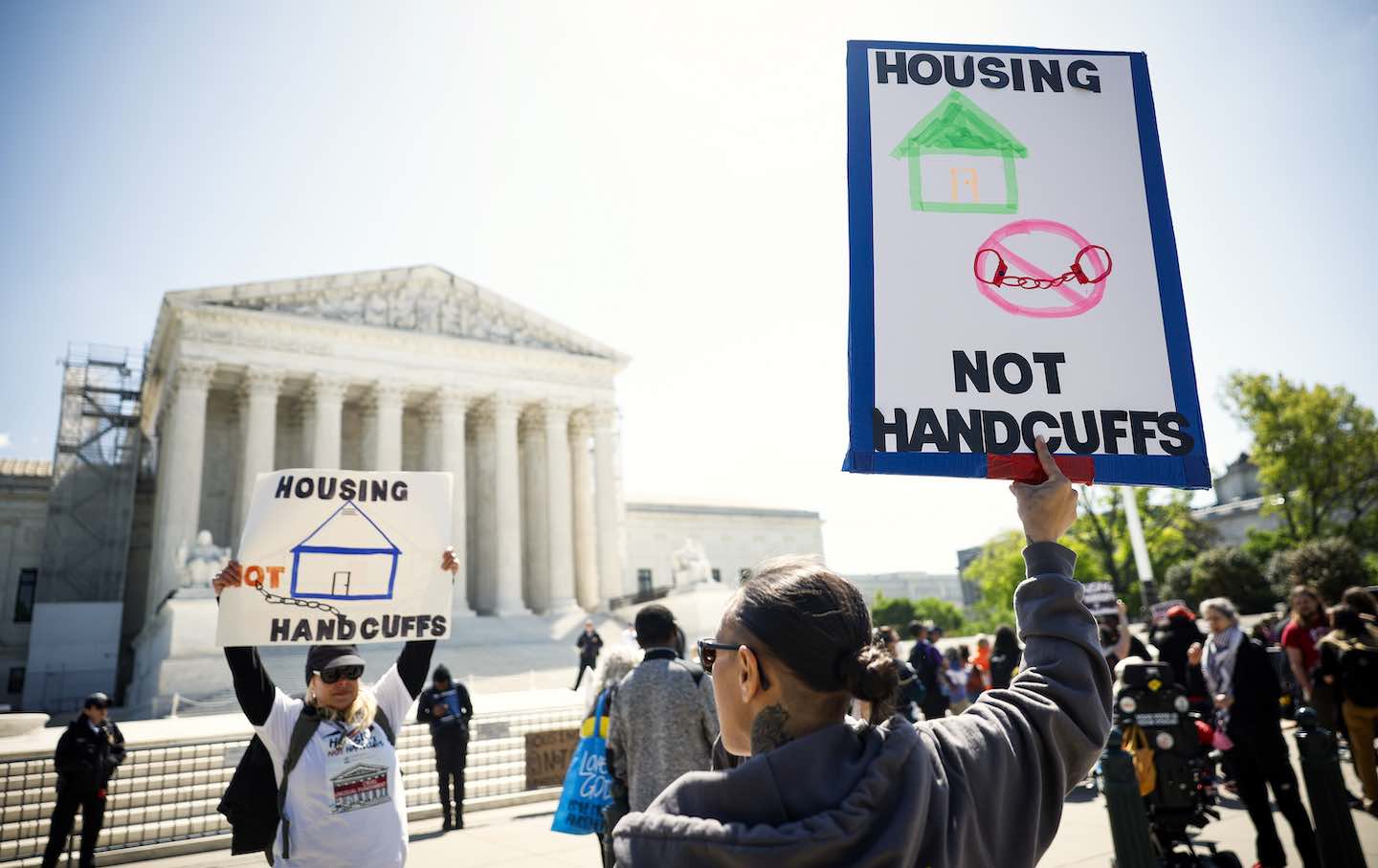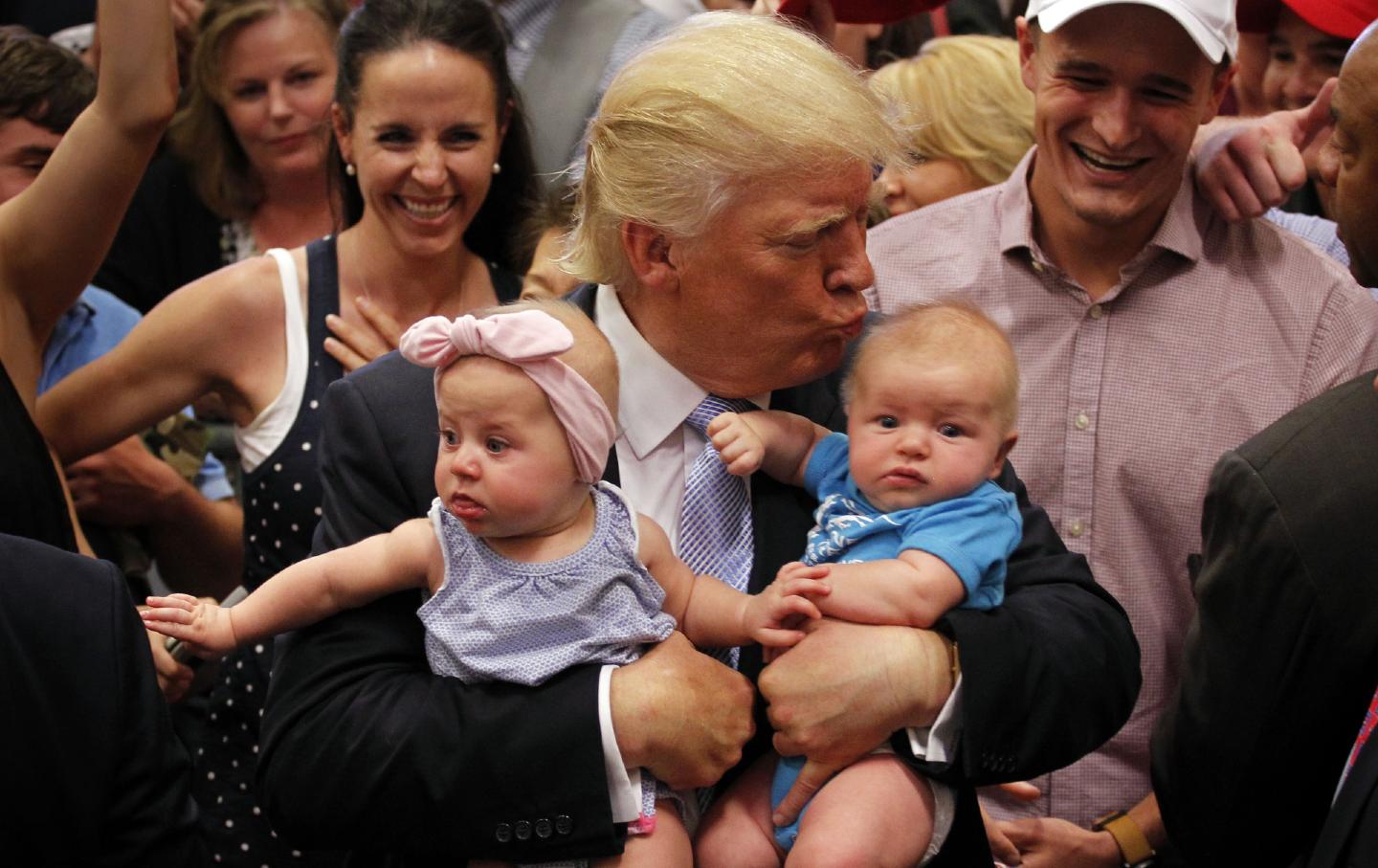Overturning Roe Wasn’t the End Goal: Mary Ziegler on the “New Civil War”
Overturning “Roe” Wasn’t the End Goal: Mary Ziegler on the “New Civil War”
A conversation with legal historian Mary Ziegler on her new book about the anti-abortion movement’s fight to establish constitutional rights for embryos and fetuses.

When the anti-abortion movement succeeded in overturning Roe v. Wade in 2022, it seemed like they’d won their holy grail. Yet, as legal historian Mary Ziegler notes in her new book Personhood: The New Civil War over Reproduction, the movement’s end goal has always been much more sweeping: establishing personhood for embryos and fetuses under the Constitution. To do so would threaten not just abortion but IVF and contraception too.
From attempts to appoint court guardians for fetuses in the 1970s to the criminalization of pregnant drug users to last year’s Alabama Supreme Court decision declaring frozen IVF embryos people, Ziegler traces the incremental progress of fetal personhood. Most timely of all, Ziegler shows how fetal personhood feeds authoritarianism. Because most people object to the idea that embryos are people and anyone with an IUD is a potential murderer, fetal personhood is deeply unpopular. Democracy, it would seem, is the movement’s biggest barrier to succeeding. As a result, abortion opponents have thrown their weight behind efforts that undermine democracy, from voter-ID laws to dark money to Trump’s Big Lie.
“We’re about to see even more of that if fetal personhood is to win,” Ziegler told me, “because as much as Roe was popular, it was not nearly as popular as not punishing women and doctors and anyone who assists them.”
I spoke with Ziegler in early April. This interview has been edited for clarity and length.
Amy Littlefield: You point out that the reversal of Roe v. Wade was never the anti-abortion movement’s ultimate goal, and in fact, “from [the movement’s] inception in the 1960s, it has always been a fetal-personhood movement.” Explain how and why fetal personhood became the holy grail.
Mary Ziegler: It starts as a strategy, in part. There’s a point in the 1960s, when states are beginning to reform their criminal abortion laws, and all of the arguments that conservatives would have traditionally turned to about abortion facilitating sexual promiscuity or being connected to obscenity and pornography, or women who are married forsaking their roles and obligations—none of those arguments really seem to be working anymore, nor do arguments saying that abortion isn’t medically necessary. At first, these constitutional arguments for fetal rights appear in the historical record as a sort of strategic fallback. But then once people in the anti-abortion movement start making them, they take on a life of their own, and they really seem to tap into something for people who want their own way of talking about who’s a victim of discrimination in America and what equality means.
AL: You note that what it means to be a person has always been contested and racialized in American law. You write that shifting arguments for fetal personhood “offer a window into how socially conservative Americans understood discrimination across issues and decades.” Can you say more about that?
MZ: When people are first talking about fetuses as persons biologically in the 19th century, they’re not talking about them as persons with rights. The dominant discourse at the time about the connection between biological personhood and rights was one grounded in the rights of enslaved people. The early generation of anti-abortion activists didn’t want to draw that analogy, in part because they weren’t all on the same page about whether enslaved people did have rights or when they should be understood as persons. Fast forward to the 1960s, when actual constitutional fetal personhood arguments get underway, the first iteration of those arguments is very much one that’s trying to compare fetuses to people of color, but that tries to transform what discrimination means.
At the time, there was this new paradigm being forged that what groups at society’s margins had in common was not just present-day political powerlessness but a history of subordination. Abortion opponents had a problem with that argument, because by their own account, there had been no discrimination against the fetus or unborn child in the past. So they began to say, actually, discrimination isn’t really about a history of subordination. We don’t really need to know what happened in the past. What we need to know is only whether you’re physically vulnerable and powerless right now. So this was a paradigm that made it much more compelling to argue, for example, for discrimination on behalf of people with disabilities, and much harder to make the same kind of argument for someone who is Black or someone who’s a woman or someone who’s queer.
AL: The Reagan administration marked a turning point when these arguments about discrimination against the fetus were tied more closely to criminalization. What happened?
MZ: You got this real solidification of the idea that the way you fix discrimination is criminalization. Ronald Reagan’s understanding of the civil rights movement of his era was what he called the victims’ rights movement—the idea that victims in the American criminal justice system had been disenfranchised and had been forced to sit silent in courtrooms while defendants had lots of procedural rights. Abortion opponents latched on to that, too, and said, the ultimate victim of violent crime in America is the fetus, and the way to do justice to the fetus, they were arguing, was no longer more support for pregnant people, or even more support for babies, or more programs to minimize infant mortality. Primarily, the argument was the way to do justice to the unborn was to punish anyone who wronged them.
AL: You write in your conclusion that “even today, it is possible to imagine a vision of fetal rights less focused on criminalization. Perhaps personhood could even accommodate those who think abortion should be legal—or even a protected right.” To push back on that a little, for me it’s hard to see how that works in a country with as developed of a police state as the United States, where we already have people being criminalized for their pregnancy outcomes.
MZ: For every country like Ireland, you have a country like Germany or South Korea that says, “Yeah, right to life is really important, but criminalizing it doesn’t really accomplish anything, so why would we do that?” As opposed to what we have now; if you say fetal personhood to most people now, you are saying the criminalization of pregnancy. That’s a product of a uniquely American history.
There’s poll after poll where there’s some fairly large percent of people who say life begins at conception and we shouldn’t criminalize abortion. So how do you [find a legal argument to] reach those people? One kind of starting point for this, there was a brief in Dobbs by Reva Siegel, Serena Mayeri, and Melissa Murray that said if governments were serious about protecting fetal life, why is the starting point criminalization? Why is the starting point not reducing maternal mortality or infant mortality, or even doing more to prevent conditions that cause mortality in the womb?
Popular
“swipe left below to view more authors”Swipe →AL: I want to ask about the fundamental contradiction you come back to time and again in the book: that the anti-abortion movement will say the fetus is a person and abortion is murder, and yet most activists will not call directly for the punishment of people who have abortions. To me that only works if you don’t see people who have abortions as people who can make autonomous decisions. Trump, when he was a baby anti-abortion activist, even called for “some form of punishment” for women who have abortions, a statement he had to walk back. How does the anti-abortion movement handle this tension?
MZ: If we assume fetal personhood means what the anti-abortion movement says—that a fetus is a person with rights and the way we honor those rights is by punishing people—then it’s really hard to see how you don’t punish women [who have abortions] unless women really systematically never or almost never understand what they’re doing. But even then, there’s tension, because you’ll see some anti-abortion activists say, “Well, what about the people who do understand? Surely, someone does understand!” So what do you do with those people?
This is another real problem for fetal personhood; fetal personhood as a concept was this utopian constitutional vision of a lot of social conservatives. It came into being at a time when it was never going to be realized as a concrete legal project, so it’s never really required grappling with political reality. The political reality as anti-abortion groups largely understand it is that punishing women would be disastrously unpopular in a way that even our current regime isn’t.
AL: There’s another major public relations issue for fetal personhood, which is that it is at odds with contraception and IVF. When the Alabama Supreme Court upheld the personhood of IVF embryos and disrupted access to IVF last year, we saw just how unpopular it is to mess with IVF.
MZ: If you go all the way back to 1978, when the first IVF pregnancy was announced, abortion opponents weren’t really sure what to do with it. On the one hand, they understood that IVF would involve creation, storage, and often destruction of embryos, which was incompatible with the idea that embryos were rights-holding persons. At the same time, IVF created life. There was no religious guidance about it as there had been for abortion. The Catholic Church didn’t take a position against IVF until the 1980s. The Southern Baptist Convention really didn’t take a clear position against IVF until 2024.
There was a fear that emphasizing it too much would undermine [their attack] on Roe and the fight for fetal personhood in the abortion context, and it would divide a movement that could ill afford any kind of slippage. That changed after Dobbs, in part because fetal personhood now is not this thought experiment moonshot that it was. It’s the next chapter for the anti-abortion movement after the demise of Roe.
You can’t afford to be inconsistent about what’s happening with IVF as people seemed to have been before. Before Roe was overturned, I was on ABC and Marjorie Dannenfelser [the president of Susan B. Anthony Pro-Life America] said something to the effect of: We are not coming for your IVF. Then of course after the Alabama Supreme Court decision, groups like Students for Life and Americans United for Life, all said: In fact we are coming for your IVF, and we’re not afraid to say so.
AL: What is the path forward for this next phase of the anti-abortion movement?
MZ: Any of the paths forward ultimately runs through the US Supreme Court. It’s not lost on anyone that the more we ask American voters, the less interested they seem to be in this vision. It’s not something we’re going to get even in red states, necessarily, the kind of constitutional fetal rights that people in the anti-abortion movement would want. There’s a reason the movement has latched on so closely to Originalism. It’s a lot easier to convince five justices on the Supreme Court than it is to convince the American people.
Hold the powerful to account by supporting The Nation
The chaos and cruelty of the Trump administration reaches new lows each week.
Trump’s catastrophic “Liberation Day” has wreaked havoc on the world economy and set up yet another constitutional crisis at home. Plainclothes officers continue to abduct university students off the streets. So-called “enemy aliens” are flown abroad to a mega prison against the orders of the courts. And Signalgate promises to be the first of many incompetence scandals that expose the brutal violence at the core of the American empire.
At a time when elite universities, powerful law firms, and influential media outlets are capitulating to Trump’s intimidation, The Nation is more determined than ever before to hold the powerful to account.
In just the last month, we’ve published reporting on how Trump outsources his mass deportation agenda to other countries, exposed the administration’s appeal to obscure laws to carry out its repressive agenda, and amplified the voices of brave student activists targeted by universities.
We also continue to tell the stories of those who fight back against Trump and Musk, whether on the streets in growing protest movements, in town halls across the country, or in critical state elections—like Wisconsin’s recent state Supreme Court race—that provide a model for resisting Trumpism and prove that Musk can’t buy our democracy.
This is the journalism that matters in 2025. But we can’t do this without you. As a reader-supported publication, we rely on the support of generous donors. Please, help make our essential independent journalism possible with a donation today.
In solidarity,
The Editors
The Nation








